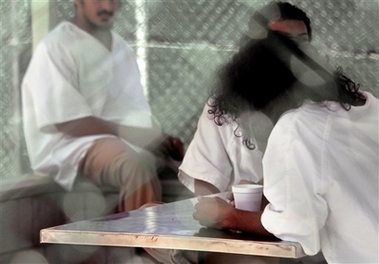US: Immigrants may be held indefinitely
(AP)Updated: 2006-11-14 09:11
WASHINGTON - Immigrants arrested in the United States may be held indefinitely on suspicion of terrorism and may not challenge their imprisonment in civilian courts, the Bush administration said Monday, opening a new legal front in the fight over the rights of detainees.
Ali Saleh Kahlah Al-Marri, a citizen of Qatar, was arrested in 2001 while studying in the United States. He has been labeled an "enemy combatant," a designation that, under a law signed last month, strips foreigners of the right to challenge their detention in federal courts.
That law is being used to argue the Guantanamo Bay cases, but Al-Marri represents the first detainee inside the United States to come under the new law. Aliens normally have the right to contest their imprisonment, such as when they are arrested on immigration violations or for other crimes.
"It's pretty stunning that any alien living in the United States can be denied this right," said Jonathan Hafetz, an attorney for Al-Marri. "It means any non-citizen, and there are millions of them, can be whisked off at night and be put in detention."
The new law says that enemy combatants will be tried before military commissions, not a civilian judge or jury, and establishes different rules of evidence in the cases. It also prohibits detainees from challenging their detention in civilian court.
In a separate court filing in Washington on Monday, the Justice Department defended that law as constitutional and necessary.
Government attorneys said foreign fighters arrested as part of an overseas military action have no constitutional rights and are being afforded more legal rights than ever.
In its short filing in the Al-Marri case, however, the Justice Department doesn't mention that Al-Marri is being held at a military prison in South Carolina - a fact that his attorneys say affords him the same rights as anyone else being held in the United States.
The Justice Department noted only that the new law applies to all enemy combatants "regardless of the location of the detention."
The Bush administration maintains that al-Marri is an al-Qaida sleeper agent. The Defense Department ordered a review of Al-Marri's status as an enemy combatant be conducted if, as requested, the case is thrown out of court.
|
||
|
||
|
|

